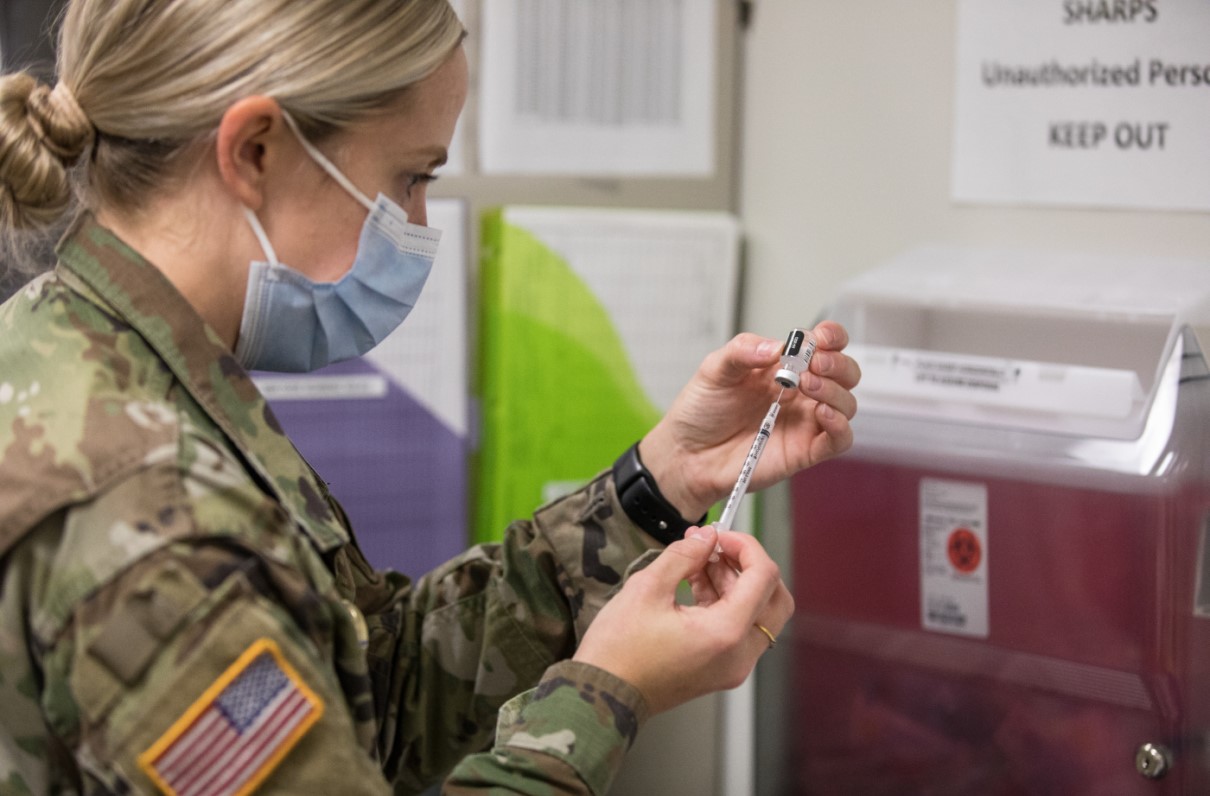MOAA joined The Military Coalition (TMC) in a recent letter to House and Senate Armed Services Committee leadership, urging members to ensure the next-generation TRICARE contract, known as T-5, meets the needs of beneficiaries.
TMC is a group of military and veterans service organizations representing a combined 5.5 million-plus membership. MOAA co-chairs TMC and many of its committees, including the health care committee.
Congress plays an important oversight role with TRICARE contracts, and for good reason: When they were awarded in 2016, the current T-2017 managed care support contracts with Humana Military in the East region and HealthNet Federal Services in the West region were valued at $58 billion over six years.
As part of military health system (MHS) reforms in the FY 2017 National Defense Authorization Act (NDAA), Congress directed significant changes to the TRICARE program, including the managed care support contractor construct. DoD is required to seek alternative payment models for health care providers, including value-based incentive programs that shift greater risk to providers and contractors. DoD must also ensure local, regional, and national health plans have an opportunity to participate to achieve greater competition among contractors and provide more choice for beneficiaries.
[RELATED: TRICARE’s Uncertain Future: How MOAA Is Working to Protect Your Benefit]
MOAA and TMC support the intent of these legislative changes to improve access to care, health outcomes, the quality of care, and the patient experience. Reforms providing the Defense Health Agency (DHA) with options to swiftly address contractor performance issues are particularly important. However, these changes come with some risks to TRICARE beneficiaries.
The TMC letter urges members of Congress to ensure the following objectives are met as they conduct their oversight role of T-5:
Minimize Transition Disruptions
TRICARE contractor transitions have historically been rife with problems for beneficiaries including delayed referrals, claims processing issues, and customer service backlogs. The letter urges DHA and Congress to consider ways to minimize disruptions as part of the T-5 process.
T-5 may also include a new intermediary eligibility/enrollment/encounter contract (or triple-E contract) to reduce barriers to entry, allowing smaller health plans to participate as TRICARE contractors. While we understand the objectives of a new third-party contract, it raises the potential for even more beneficiary problems related to transitioning these functions to a triple-E contractor. The letter urges Congress to ensure any triple-E contract is implemented such that military families encounter minimal disruptions associated with the change.
Shield Beneficiaries From Higher TRICARE Costs
One of the tenets of value-based care is an upfront investment in high quality care, provider incentives, preventive services, and care coordination to achieve better health outcomes – and therefore lower health care spending – in the long run. We are concerned the new T-5 construct may, in the short term, result in significant programmatic cost increases for TRICARE.
Rising costs have historically been used to justify TRICARE fee increases, so we are understandably concerned beneficiaries may be tapped to offset rising costs in the future. The letter reminds Congress MOAA and TMC are committed to blocking proposals to shift health care costs to beneficiaries, particularly if the cost increase results from TRICARE contract changes.
[RELATED: MOAA's 2020-21 TRICARE Guide]
Maintain Robust Provider Networks
With each contract transition, military families face the risk of diminished provider networks as contractors develop competitive bids that necessitate deeply discounted provider reimbursements. We appreciate the T-5 draft requests for proposals have included limits on individual provider discounts. We also understand the move to increased competition is intended to prevent a downward spiral of narrowed provider networks or networks that lack quality providers.
However, the breadth and quality of managed care support contractors’ networks for the main TRICARE regions will remain essential to beneficiary access to care in most geographic areas. The letter urges Congress to ensure the T-5 process results in regional contracts that improve access to care through robust networks of high-quality providers.
Improve Access to Mental Health Care
An August 2020 DoD Inspector General (IG) report, Evaluation of Access to Mental Health in the Department of Defense, confirmed anecdotal reports MOAA has been hearing for years – military families face significant barriers to accessing mental health care. The letter asks Congress to ensure T-5 incorporates IG recommendations to improve access to mental health care in the TRICARE network by requiring adoption of a single MHS-wide mental health care staffing model.
In addition to maintaining robust provider networks, the T-5 contract must also require contractors to ensure their provider directories are accurate and up to date, so beneficiaries can more easily find an appropriate network provider.
The letter also reminds Congress that T-5 changes are taking place in the context of MHS reforms – changes dramatically altering the organization and governance of the direct care system of military hospitals and clinics.
The T-5 request for proposals has been released, and proposals are due in August. The current TRICARE contracts run through Dec. 31, 2022. MOAA and TMC will continue to advocate for beneficiaries to ensure T-5 changes and other MHS reforms maintain our members’ access to the quality health care they have earned.
Have you had problems finding a TRICARE provider? Please let us know at legis@moaa.org. Your feedback helps greatly with our advocacy efforts!
MEDIPLUS® TRICARE Supplement
Works hand-in-hand with your Select or Prime Plan. Count on valuable protection.

